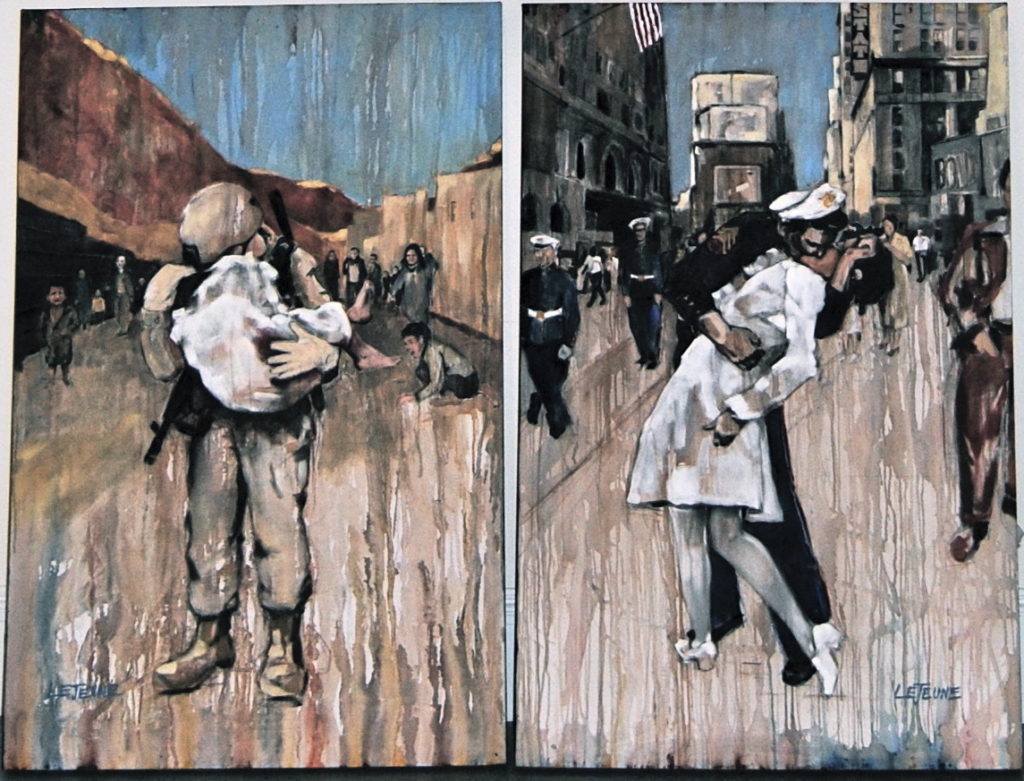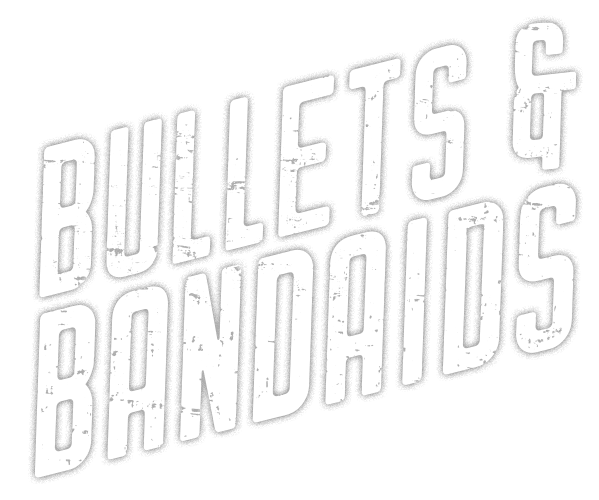Whitney Lejeune
Watercolor on Canvas
36″ x 48″ Diptych

by Robert LeHeulp
I’d begged for war. Its romantic violence beat through my heart; coursed through every portion of me. The thrill of blood and victory sung me lullabies while I slept, while my waking hours were filled with fantasies of justified brutality. I wasn’t special. I was a Marine. A warrior. And people call us heroes.
I’d prepared myself for this. Hell, it was already a part of me, as it is in so many who don’t know better. And this, coupled with my training, had molded me into something steel, ready to wield hate and discontent like dragon flame. This training is what brought me to Kabul, and what brought me to a gun range several miles outside of the city itself. There we were conducting a live fire exercise with Army Special Forces using M16s and AT4 rocket launchers.
In Kabul, there are gangs of children who have run away from their homes, or whose parents have cast them out or had died, often very young themselves. These gangs aren’t malicious; they’re hungry, though the two can often be confused. Industrious and ambitious, these children scratch and pick and claw out a living through dust and giants in order to survive one day at a time. They were denied the luxury of childhood. And they were out on the range with us.
The brass casings that were ejected from the spent rounds of our M16s could be used in a number of different ways, melted down for a thousand different reasons. For this reason, the children were waiting
with baited breath for the opportunity to fill their thin, empty pockets with brass turned to gold. So we obliged them. Thousands of rounds had peppered our targets and the side of the orange mountain beyond. Our guns were spilling out what these children considered currency. After we had expended all our ammunition, we returned to our vans, leaving the Army Special Forces to finish at their own pace.
As soon as we got into our transport, the children flooded forward, ready to collect the candy of a metal piñata. They didn’t know that there were still soldiers on the firing line. The soldiers reacted calmly enough, pelting the children with rocks, rather than opening fire on them and potentially hitting us. And so they ran away. All but one.
He walked over to our van clutching his stomach and making a face I at first thought was laughter. An then the rock fell out of his temple. It was about three inches in diameter and left a broken white hole with a red eye in the center of this 8-year-old’s forehead, which almost immediately filled with blood that ran down his face. He fell to his knees while another kid ran up and knelt behind him. That country is anything but clean. There was no helping him. This child was going to die. And he knew it. And we watched. Too many things ran through my head as I saw him fall backwards. He wasn’t laughing. But every Marine in the van was.
It was a cacophony of mad gut-laughter, as though war were the joke and this child was the punch line. The chuckles floundered before they died, hiccups of jaded comments transitioning into a cold, dead
silence. I’d like to think I was the exception, but I may have cracked an awkward smile, not wanting to reveal my concern for a situation I couldn’t have prevented, nor could help. This is war, after all, and
concern is weakness.
And I was not weak. I wanted to rend the enemy in two with my teeth. I wanted to drink their blood to gain their strength and taste that sweet victory; to take all the shit the enemy could throw and respond stronger. Of course it was going to be hard. I was just going to be harder. The enemy had their methods and, by God, we had ours. So you can’t blame the soldiers, nor the marines. Not entirely. Any one of us could very well have done the same. And they laughed, and I smiled because it’s war and we were warriors. Just save the term “hero” for someone else.
